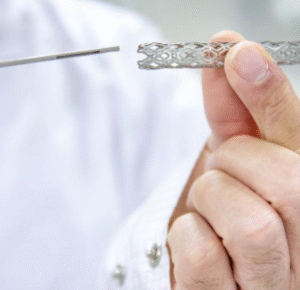
Sleep apnea is a common sleep disorder that affects millions of people worldwide. Characterized by frequent pauses in breathing during sleep, sleep apnea can lead to numerous health problems if left untreated. While lifestyle changes and continuous positive airway pressure (CPAP) therapy are often the first lines of defense, sleep apnea surgery has emerged as an effective treatment option for individuals with severe or resistant cases. This article explores how sleep apnea surgery can transform your health and improve your overall quality of life.
Understanding Sleep Apnea and Its Impact on Health
Sleep apnea occurs when the muscles in the back of your throat relax excessively during sleep, obstructing the airway and causing breathing to stop temporarily. The most common form is obstructive sleep apnea (OSA), which often results in loud snoring, choking, or gasping for air during sleep. If left untreated, sleep apnea can lead to serious health issues such as high blood pressure, heart disease, stroke, diabetes, and even premature death.
In addition to physical health risks, sleep apnea can also take a toll on mental well-being. Individuals with sleep apnea often experience fatigue, difficulty concentrating, irritability, and a reduced quality of life due to poor sleep.
When Sleep Apnea Surgery Becomes Necessary
For many individuals, lifestyle changes (such as weight loss, exercise, and avoiding alcohol) and non-invasive treatments like CPAP therapy can effectively manage sleep apnea. However, these methods may not be sufficient for everyone, especially those with severe cases or structural issues contributing to their condition. In such cases, sleep apnea surgery may offer a permanent solution to improve sleep quality and overall health.
Sleep apnea surgery is typically recommended for patients who have not responded to other treatments or for those who have anatomical abnormalities such as enlarged tonsils, a deviated septum, or excess tissue in the throat that contribute to airway obstruction. Surgical options vary, and the right procedure depends on the individual’s specific condition.
Types of Sleep Apnea Surgery
There are several surgical options available for treating sleep apnea, each targeting different areas of the airway:
- Uvulopalatopharyngoplasty (UPPP): One of the most common sleep apnea surgeries, UPPP involves removing excess tissue from the throat, including the uvula (the fleshy extension at the back of the soft palate), parts of the soft palate, and potentially the tonsils and adenoids. This procedure helps widen the airway, reducing airway obstruction.
- Genioglossus Advancement (GA): This procedure involves repositioning the muscles attached to the tongue and jaw to prevent the tongue from collapsing into the airway during sleep. It is often combined with other surgeries for more effective results.
- Maxillomandibular Advancement (MMA): MMA is a more invasive surgery that involves moving the upper and lower jaw forward to create more space in the airway. It is usually recommended for patients with significant airway obstruction due to jaw structure.
- Inspire Therapy (Implantable Device): For patients who are not candidates for traditional surgery, Inspire Therapy offers a less invasive option. This involves implanting a small device under the skin of the chest that stimulates the muscles in the airway to prevent them from collapsing during sleep.
Benefits of Sleep Apnea Surgery
While surgery may not be necessary for all individuals with sleep apnea, those who undergo the procedure often experience significant improvements in their health. Some of the key benefits of sleep apnea surgery include:
- Improved Sleep Quality: By addressing the physical causes of airway obstruction, sleep apnea surgery can help restore normal breathing patterns, leading to deeper, more restful sleep.
- Reduced Risk of Health Complications: Effective treatment of sleep apnea can reduce the risk of associated conditions such as hypertension, heart disease, and stroke.
- Increased Energy and Alertness: Patients who undergo sleep apnea surgery often report feeling more energetic, alert, and focused throughout the day, as they are no longer plagued by fatigue caused by interrupted sleep.
- Better Mental Health: Improved sleep can lead to a reduction in anxiety, depression, and irritability, helping patients feel better emotionally and mentally.
Recovery and Considerations
Like any surgery, sleep apnea surgery requires careful consideration and preparation. Recovery times vary depending on the type of procedure, but most patients can expect some discomfort, swelling, and a temporary period of restricted activity. It’s important to follow post-operative care instructions carefully to ensure proper healing and optimal results.
Patients should also keep in mind that surgery may not be a “cure-all” for sleep apnea, especially if the condition is caused by multiple factors. Regular follow-up appointments with a sleep specialist are essential to monitor progress and ensure the success of the procedure.
Conclusion
Sleep apnea surgery can be a life-changing treatment for individuals who suffer from severe or treatment-resistant sleep apnea. By addressing the root causes of airway obstruction, surgery can significantly improve sleep quality, reduce the risk of serious health conditions, and enhance overall well-being. If other treatments have not been effective, consulting with a sleep specialist to explore surgical options may be the key to a better night’s sleep and a healthier life.


